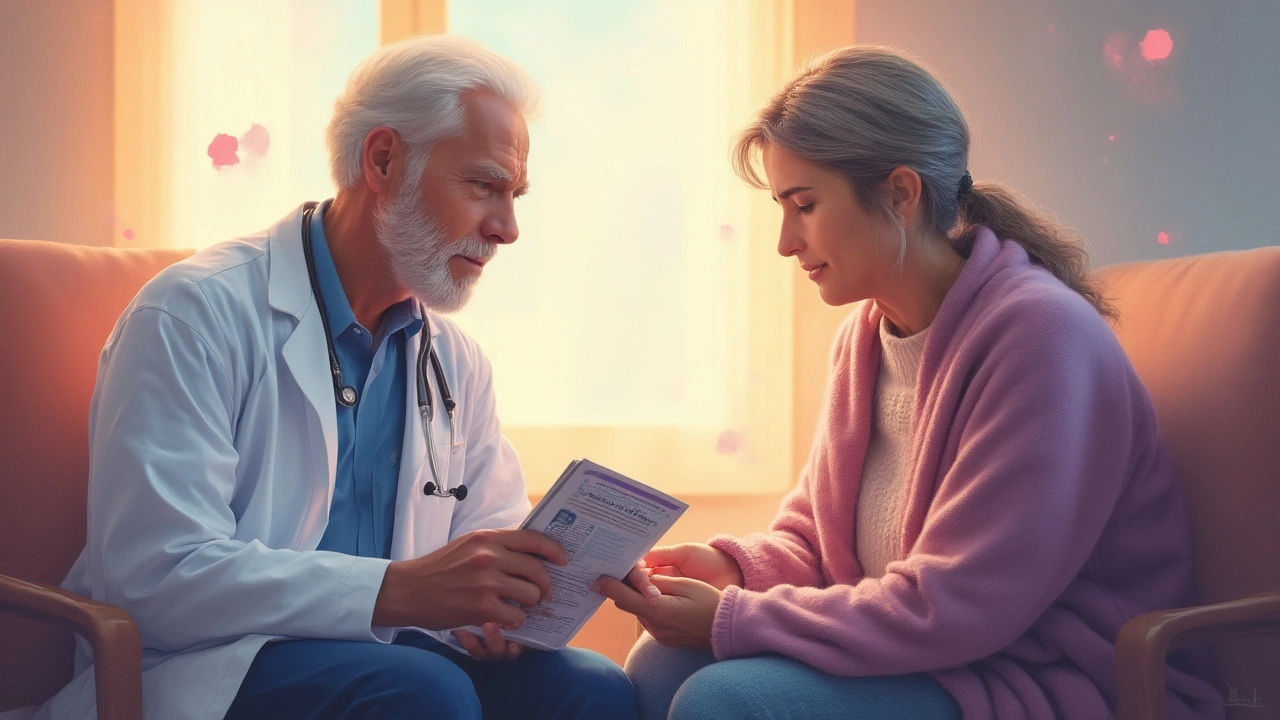Bladder Pain: What It Means and How to Find Fast Relief
If you’ve ever felt a burning or pressure in your lower belly, you’ve probably dealt with bladder pain. It can show up after a night out, during a flu, or even for no clear reason. The good news? Most of the time you can figure out what’s going on and start feeling better at home.
Common Triggers and When to Worry
Bladder pain often comes from a urinary tract infection (UTI). Bacteria sneak into the bladder and cause a sting that gets worse when you pee. Other triggers include bladder stones, an overactive bladder, or irritation from certain foods and drinks. If the pain is sharp, comes with fever, blood in urine, or lasts more than a couple of days, it’s time to call a doctor.
Simple Home Strategies That Actually Work
First, drink plenty of water. Flush out the bacteria by sipping a glass every hour. Cranberry juice (unsweetened) can help keep the bladder clean, but don’t overdo the sugar. Over‑the‑counter pain relievers like ibuprofen reduce the ache, but follow the label. Heating pads on a low setting can soothe the muscles, and avoid caffeine, alcohol, and spicy foods until the pain eases.
Another quick tip: try the “double‑void” method. Go to the bathroom, wait a minute, then try again. This helps empty the bladder fully and reduces irritation. If you’re prone to bladder pain after sex, make sure to pee afterward to clear any lingering bacteria.
Keeping good hygiene matters too. Wipe front to back, wear breathable cotton underwear, and change pads or tampons frequently. These habits lower the chance of bacteria climbing up the urinary tract.
When you finally get to see a doctor, they’ll likely test your urine and maybe prescribe a short course of antibiotics if it’s an infection. Most people feel better within a few days of starting treatment.
In the meantime, track what makes the pain better or worse. A simple diary of fluids, foods, and symptoms can give your doctor clues and help you spot patterns for future flare‑ups.
Bottom line: bladder pain is usually not a mystery. Stay hydrated, avoid irritants, use gentle pain relief, and seek medical help if the pain is severe, lasts long, or comes with fever or blood. With these steps, you can get back to feeling normal fast.
Phenazopyridine for Radiation Cystitis: Symptom Relief and Patient Guidance
-
Written by Clarissa Farnell
20/ 07
Radiation cystitis can be a brutal side effect for cancer patients. Find out how phenazopyridine helps manage bladder pain and burning, plus safety tips and facts.
